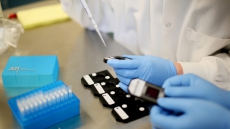Researchers have found how mutations in a gene called Tmie can cause deafness from birth, suggesting new avenues for therapies aimed at restoring hearing.
Underlining the critical nature of their findings, researchers were able to reintroduce the gene in mice and restore the process underpinning hearing.
"This raises hopes that we could, in principle, use gene-therapy approaches to restore function in hair cells and thus develop new treatment options for hearing loss," said senior author of the study Ulrich Muller from The Scripps Research Institute (TSRI) in California.
The ear is a complex machine that converts mechanical sound waves into electric signals for the brain to process.
This process, called mechanotransduction, still poses many mysteries.
The researchers discovered how the gene Tmie's protein, TMIE, aids this process.
Once they found what role Tmie plays, the researchers bred a population of mice that lacked the gene.
They examined the hair cells of the mice with electrophysiological techniques and found that without Tmie, no electrical signal could be evoked in hair cells after stimulation.
"The mechanotransduction current is gone; the mouse is totally deaf," said Bo Zhao, a research associate in the Muller lab and first author of the new paper.
In a second experiment, the researchers reintroduced Tmie to mice that had been deaf since birth and found the electrical signals were restored.
The findings appeared in the journal Neuron.





